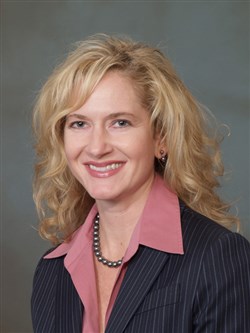 Home > Article
Home > Article
VOL. 35 | NO. 40 | Friday, October 7, 2011
Green Business
Community buy-in key to green programs
By Hollie Deese

Tabitha Crawford
As the president of Balfour Beatty Energy Solutions, Tabitha Crawford knows a thing or two about energy efficiency. As part of a global construction management organization committed to sustainable infrastructure development, she makes sure her company identifies and executes practices that help increase efficiency, reduce costs and generate income.
“One of the things we have learned is that you can make all the green buildings you want, but that is really just the beginning,” Crawford says. “You really have to focus on behavior and getting people’s ‘buy in’ to change.
“You can’t use altruism to reach people. You have to use proven behavioral techniques like regular salespeople do with every other product. So why shouldn’t we use them for sustainability and green things, too?”
Balfour Beatty’s clients, in addition to numerous schools, hospitals, government buildings, retail and mixed-use facilities, include nearly 50 military communities throughout the country.
“It is like that TV show where they go in and remake the house, except we are redoing between 300 and 4,000 homes, as well as adding green spaces, walkable places, improving energy efficiency and putting solar on the rooftops,” she says. “We are also working with the residents on conservation programs.”
Entire neighborhoods are transformed by incorporating energy star products, environmentally friendly materials and recycling and reusing site materials.
Name: Tabitha Crawford
Hometown: Elizabethtown, Ky.Company: Balfour Beatty Energy Solutions
Title: President
You could say Crawford’s commitment to a sustainable career actually began in 1994 when she was the senior vice president of new markets for Fort Knox National Company. There, she was the co-creator and sold “TruePay,” one of the first web-based electronic payment systems that moved from paper checks to electronic. Years later, she created the first private technology link into Department of Defense payroll systems for the Military Housing Privatization Initiative.
In the last decade, Crawford herself has become a national sustainability leader and speaker, talking about topics that include the economic impacts of climate change and achieving synergy through sustainability. She has been involved in shaping national programs such as the U.S. Partnership for Education for Sustainable Development and the Presidential Climate Action Plan.
She teaches at Lipscomb University’s Sustainable Practice Institute and was recently named “Southeast Green Innovator of the Year” for her work. She was even responsible for the creation of SYNERGY, an award-winning grassroots technology, conservation and employee behavior program included in the Mayoral Climate Protection Manual distributed to 700 cities globally.
“My degrees are in finance, and when I first finished I kind of caught the wave of the Internet taking off,” she says. “It was an exciting time, but I wanted the kind of job where I actually felt really good about what I was doing. I wanted it to be in an area that is taking off, like the Internet is taking off, and that is where I came up with energy and sustainability. I thought energy, with its shortened supply and increasing demand, was going to be a hot area of the future from a macroeconomic perspective.”
Now she takes all she has learned and helps others accelerate their own energy programs, warning against simply hiring an energy specialist to get the job done.
“They will form a committee and they will educate people, but there is a zero correlation between the education of adults and sustained behavior change,” Crawford says. “Zero. So all of the tips in the world and all of the feel-good speeches aren’t going to do anything. What we can do to help others is to show them how to make their program work.
“If you have 1,000 employees, instead of having one person try to do 500 things, give all 1,000 of them just one goal and tie it to their performance review every year. If you give simple, clear, actionable goals, and give them specific to each person’s job, then you will accelerate what you are doing .You need to be really targeted and focused on what you do.”